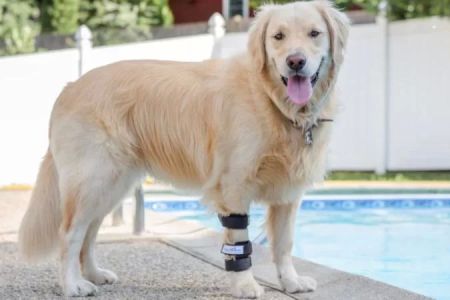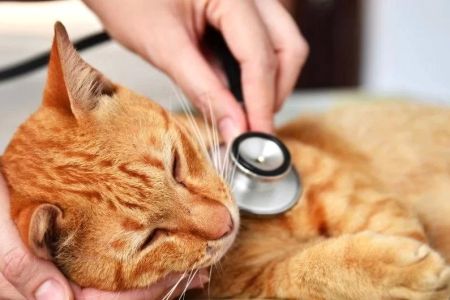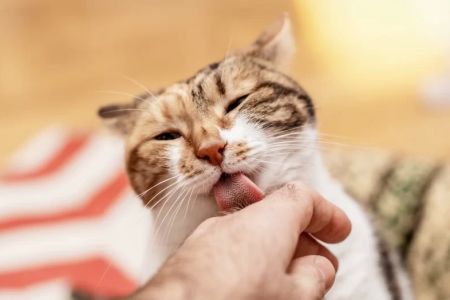Understanding Your Dog's Loss of Appetite and Weight Loss
As a dog owner, it's incredibly distressing to watch your furry friend lose their appetite and begin to shed weight. When a dog isn't eating, it can signal underlying health issues that require immediate attention. In this article, I want to share my experience and knowledge about the possible reasons for a dog's loss of appetite and weight loss. I’ll also provide some practical advice on how to handle these situations, drawing from real-life stories and insights from veterinary care.
Why is My Dog Losing Weight and Appetite?
Initially, when I noticed that my dog, Max, was starting to skip meals, I was worried. He had always been an energetic and food-driven dog, so a sudden change in his eating habits made me anxious. I soon discovered that there are several potential causes for a dog to stop eating and lose weight. It can be due to something as simple as stress or a dietary preference, but it can also signal more serious health problems. Understanding these causes is the first step to helping your dog get back to their healthy self.
Here are some common reasons why dogs might lose their appetite and begin to lose weight:
- Health Problems: Serious illnesses like kidney disease, cancer, or gastrointestinal issues can cause your dog to stop eating and lose weight. These conditions may not be immediately obvious, which is why a vet’s evaluation is essential.
- Dental Issues: Painful dental conditions, such as gum disease or broken teeth, can make eating uncomfortable for dogs, leading to a loss of appetite.
- Infections: Bacterial or viral infections can result in lethargy, vomiting, or a decreased appetite. Parvovirus, for example, is a common cause of appetite loss in puppies.
- Stress or Anxiety: Just like humans, dogs can experience stress and anxiety. Moving to a new home, a change in routine, or the loss of a companion can all affect your dog’s eating habits.
- Age-Related Changes: Older dogs often experience changes in appetite due to a natural slowing down of their metabolism or even conditions like arthritis, which can make eating more difficult.
Max’s Experience: A Case Study
Let me share a story about Max, my 5-year-old Labrador. A few months ago, I noticed that he had been turning away from his food. At first, I didn’t think much of it, assuming it might just be a temporary phase. However, as the days went on, Max’s weight began to drop, and he became lethargic. I rushed him to the vet, where we discovered that he had a dental infection, which was causing him pain and making eating uncomfortable.
Max’s situation is not unique. Many dogs suffer from dental problems that can go unnoticed until they start to cause more serious symptoms like weight loss. Once the infection was treated, Max regained his appetite and started eating like normal again. This experience made me realize how crucial it is to keep an eye on my dog's eating habits and be proactive about their health.
How to Help Your Dog Regain Their Appetite
If you’re facing a similar situation with your dog, it’s important to take action quickly. Here are some steps I’ve found helpful in encouraging a dog to eat again:
- Visit the Vet: The first step is always to consult with a veterinarian. They can help diagnose any underlying medical conditions that might be causing the loss of appetite and weight.
- Offer Wet Food or Broth: If your dog is refusing dry kibble, try switching to wet food or adding a bit of chicken broth to their meal to make it more appealing.
- Encourage Eating in a Stress-Free Environment: If your dog is anxious, create a calm eating space free from distractions. You may also want to try hand-feeding them to stimulate their appetite.
- Gradually Introduce New Foods: Sometimes, dogs lose interest in their regular food. Try offering small amounts of new, high-quality food to entice them back to the bowl.
- Provide Regular Exercise: Regular activity can help boost your dog’s appetite by improving their overall health and making them hungrier at mealtimes.
The Importance of Veterinary Care in Weight Loss Cases
While the home remedies mentioned above can be helpful in the short term, it's important to address the root cause of your dog’s weight loss. Prolonged loss of appetite and weight loss should never be ignored, as these symptoms can indicate serious health issues. Veterinary care is essential in diagnosing and treating the underlying causes of your dog’s condition.
For instance, if your dog is diagnosed with a chronic illness, your vet may recommend a special diet or medication to manage their condition and help them regain their strength. In some cases, more advanced treatment, such as surgery or ongoing therapy, may be necessary to address the problem. Trusting a professional with your dog’s care is key to ensuring a successful recovery.
Final Thoughts
Seeing your dog lose weight and stop eating is undoubtedly concerning. However, with prompt attention and the right approach, most dogs can recover from these issues and return to their healthy, happy selves. I urge all dog owners to stay vigilant about their pets' eating habits and consult a veterinarian if you notice any concerning changes. After all, our dogs rely on us to care for them, and seeking professional help when needed is the best way to ensure their long-term health and happiness.











